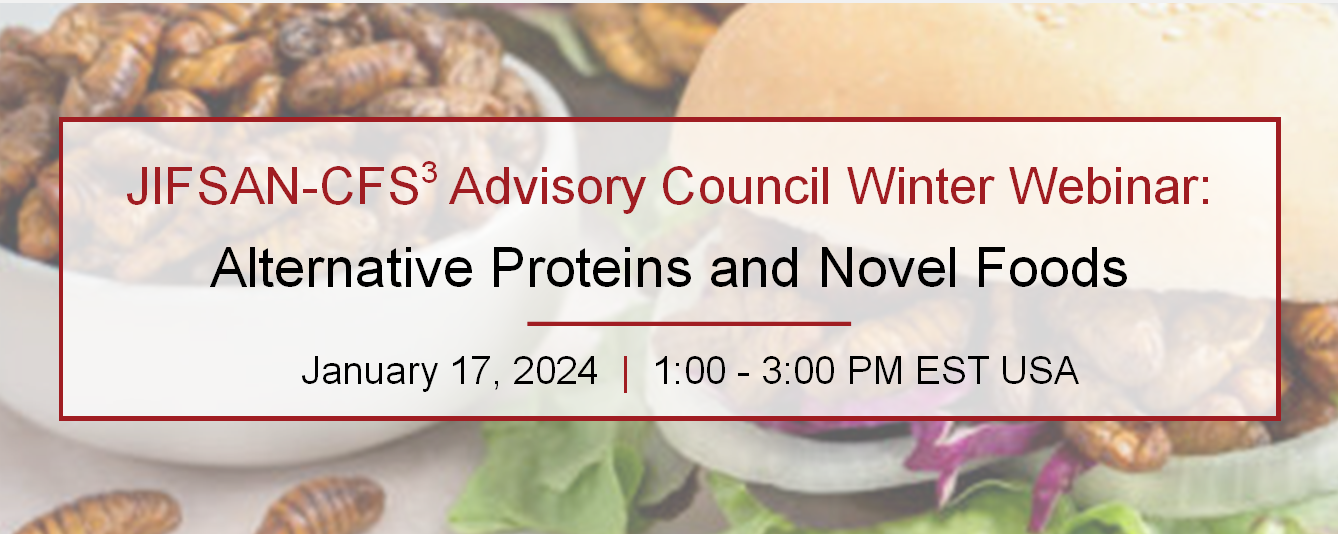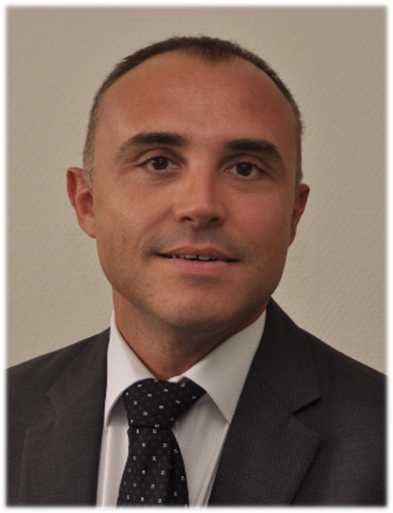
Background
The landscape of food production is changing. This change, driven by the desire for a more sustainable food supply and accelerated by advances in cellular biology, fermentation methods, and food science, has led to the development of novel protein sources. Emerging novel food products from these sources offer challenges for both producers and regulators to ensure their safety through accurate and fit-for-purpose analysis. Join us as we are bringing together various stakeholders – regulators, scientists, industry experts, and innovators – in a dynamic webinar designed to foster collaboration and achieve a common goal of establishing harmonized standards bolstering consumers’ confidence and supporting innovation.
Our panel of experts will share their knowledge, experiences, and best practices to address the challenges facing this industry, followed by an open forum discussion. We would like to hear your thoughts, suggestions, challenges, and pain points, and identify solutions.
Event Speakers

Jay Alappat, PhD
Regional Technical Director of Chemistry, North America
Merieux Nutrisciences
Allentown, Pennsylvania
Presentation: Novel Foods from Alternative Protein Sources: Addressing Challenges to Ensure Sustainable Growth
Dr. Alappat is the Regional Technical Director of Chemistry (North America) for Merieux Nutrisciences. Jay is responsible for evaluating the validation and verification packages of methods created by the Research, Development and Industrialization teams of the organization. This ensures that the methods are suitable for their intended purpose and comply with all quality requirements established for them. With over two decades of experience, Jay has a wealth of knowledge in analytical method development, validation, verification and successful implementation. His extensive knowledge, passion and expertise in food and food supplement research makes him a thought leader capable of transforming data into valuable insights and tangible outcomes. Jay Alappat received his Ph. D in analytical chemistry from Indian Institute of Technology, Madras and has postdoctoral experience in food chemistry, food safety, natural products, enzyme chemistry and molecular biology. Jay brings experienced perspective to the safety, quality and acceptability of novel food ingredients; and their impact on sustainable food production.
Presentation Abstract: Concern over safety and security of food for an increasing world population (which is estimated to grow to about 10 billion by 2050) has initiated the quest for alternative protein sources. Research, development, and marketing of foods produced from these new pathways are on the rise and they do not have a significant history of consumption. They are often produced by methods that are not validated or previously unknown. Increased financing from investors who are committed to sustainability, the evolution of processing technologies, and rise in flexitarianism and customer appetite for sustainability are poised to accelerate these industrial endeavors. The global alternative protein business is expected to reach 200 billion dollars by 2030. Jay Alappat will present the current landscape on Novel foods - naming, production, regulations, testing and testing challenges – across the globe. The presentation will conclude with the challenges, opportunities and the path ahead when novel foods become a normal.
Download Presentation

Brian Furey, PhD
Senior Director, Regulatory Affairs
Natures Fynd
Chicago, Illinois
Presentation: Fy Protein – Developing a Novel Fungi Protein Ingredient from Yellowstone Park
Dr. Furey is the Senior Director of Regulatory Affairs at Nature’s Fynd, a team of determined optimists, who bravely challenge convention by discovering solutions to improve our food supply and leave the planet a better place. Over the past 4 years with Nature's Fynd, Brian has led his team to achieve international novel food approvals and scale the process of making Fy Protein from the bench to a 35K sq ft facility in Bridgeport, Chicago. At prior companies, he successfully achieved domestic and international regulatory approvals and patents for a number of biobased materials and CPG products. At the start of his career, he trained in chemistry working on natural product adjuvants for malaria, HPV, and hepatitis vaccines. Brian has an education in cell biology and neuroscience from Montana State University.
Presentation Abstract: Nature’s Fynd is an innovative food company creating versatile alternative proteins to nourish the world’s growing population while nurturing the planet. Born out of research conducted for NASA on microbes in Yellowstone National Park, the company’s breakthrough technology produces Fy™. Fy is a new-to-the-world, nutritional fungi protein that only uses a fraction of the resources required by traditional agriculture. We use Fy to make delicious, nutritious, and sustainable meat and dairy alternatives. With any new ingredient, compositional testing brings its challenges and Nature's Fynd would like to share learnings from protein methodology.
Download Presentation

Michael Madonna, PhD
Formerly Sr. Director of Protein Science at Shiru
Presentation: Developments and Challenges in Precision Fermentation of Functional Protein Ingredients
Dr. Madonna received his Ph.D. in Chemistry & Biochemistry from the University of California – Santa Cruz and his B.S. from Cal Poly – San Luis Obispo. After earning his Ph.D., Michael spent three years at Eurofins – Lancaster Laboratories, where he worked with leading companies in the biopharmaceutical industry to characterize therapeutic antibodies. Michael then made the jump to Food Tech, where he could combine his expertise in proteins and his passion for food. Over the last seven years, Michael has worked with world-class scientists, chefs, and engineers to discover, develop, and scale functional food proteins. During this time he has successfully led efforts to bring new protein ingredients through the regulatory process, earning the designation as Generally recognized as Safe (GRAS).
Download Presentation

Stéphane Vidry, PhD
Global Executive Director
International Life Sciences Institute (ILSI)
Presentation: A Tripartite Perspective for Safety Assessment of Cultivated Food Products
Dr. Stéphane Vidry is the Global Executive Director of ILSI and Executive Director of ILSI U.S. and Canada, headquartered in Washington D.C., USA. Prior to that, Stéphane was Assistant Director for ILSI Europe where for 12 years, he managed several food safety-nutrition activities including coordination of a European Commission-funded project on Benefit Risk Analysis of Foods and led a team of 7 scientists. Stéphane also worked for the European Commission Joint Research Center, the international dairy company Lactalis. Stéphane holds a PhD in Food Sciences from University of Montpellier, France where he also taught.
Presentation Abstract: With a global demand for animal-based protein estimated to double by 2050, fundamental changes in agriculture and food production seem inevitable. Industrial biotechnology innovation and cellular agriculture in particular hold great promises in providing nutritious, safe and healthy food independently of seasonal and geographical inputs (1-3). Cellular agriculture, the technologies, and processes behind the production of cellular products (in vitro meat for example) is an emerging science that leverages stem cell biology, tissue engineering and animal sciences. The development and the commercialization of cultivated meat is progressing at unprecedented speed, which demands the identification of knowledge gaps relevant to its safety and risk to the consumers at a similar pace. An industry perspective of the food safety framework recently highlighted the research gaps and future assessment, and requirement needs (4).
ILSI U.S. and Canada recently launched a pre-competitive initiative on ‘Risk Assessment of Cell-based Cultivated Products’ involving government, academia and private sector representatives, with the aim to identify knowledge gaps that are relevant for the safety assessment of foods produced by cellular agriculture. Dr. Vidry will speak on the currently drafted white paper – ‘Categorization of Manufacturing Components in Cellular Agriculture: A Tripartite Perspective for Safety Assessment' and will present other ideas that the group is considering for their next project.
Download Presentation
References:
1. Aschemann-Witzel, J., et al. (2021) Plant-based food and protein trend from a business perspective: markets, consumers, and the challenges and opportunities in the future. Crit Rev Food Sci 61(18): 3119-3128.
2. Food and Agriculture Organization. Food Systems.
3. Rischer, H., et al. (2020) Cellular agriculture – industrial biotechnology for food and materials. Curr Opin Biotech 61: 128-134.
4. Ong, K.J., et al. (2021) Food safety considerations and research priorities for the cultured meat and seafood industry. Compr Rev Food Sci Food Saf 20(6): 5421-5448.

Todor Todorov, PhD
Chemist
Food and Drug Administration
Office of Food Additive Safety,
Center for Food Safety and Applied Nutrition
College Park, Maryland
Presentation: Premarket Review of Food Ingredients in the United States
Dr. Todorov is a chemist at the Division of Food Ingredients at the Office of Food Additive Safety. He earned his BS in chemistry in 1998 at SUNY Buffalo and PhD (analytical chemistry) in 2003 from University of Michigan. Following graduate school, he has worked at the Department of Defense and US Geological survey focusing on methodologies for total and speciated analyses of toxic and nutritional elements in biological samples. In 2013, he joined the Center for Food Safety and Applied Nutrition (CFSAN) at the FDA where he reviews submissions for new food ingredients and additives.
Presentation Abstract: The presentation will focus on the safety evaluation of food ingredients in the United States. There are multiples pathways for the pre-market evaluation of food ingredients in the US, including food and color additive petitions, notifications for generally recognized as safe (GRAS) ingredients, and pre-market consultations for human foods made from cell cultured animal cells. Food and color additives are subject to pre-market approval by the FDA and require a listing in Title 21 of the Code of Federal Regulations. GRAS ingredients are those that are generally recognized to be safe among qualified experts under the intended conditions of use, and the underlying safety data must be generally available and reflect a consensus of scientific opinion. The GRAS review process is voluntary and does not require FDA pre-market approval, but must meet the same safety standard as food and color additives. Similarly, the consultations for human foods made from cell cultured animal cells are voluntary but they also meet the same stringent FDA requirements, including facility registration and applicable safety requirements, as other food ingredients. In addition, the presentation will briefly touch on FDA guidelines for method validation for food ingredient analysis.
Download Presentation

Katerina (Kate) Mastovska, PhD
Deputy Executive Director and Chief Science Officer
AOAC International
Presentation: A New Standards Development Program on Novel Foods from Alternative Protein Sources
Dr. Mastovska is Deputy Executive Director and Chief Science Officer at AOAC INTERNATIONAL, where she is responsible for leadership of all science programs and projects. She joined the AOAC staff in January 2023 but has been a very active member of AOAC INTERNATIONAL since 2004. Kate is a Fellow of AOAC INTERNATIONAL and received the Association’s highest scientific honor, the Harvey W. Wiley Award, in 2021. Prior to joining AOAC, she worked at Eurofins Scientific and has most recently served as Chief Scientific Officer at Eurofins US Food Division.
Presentation Abstract: Recently, there has been a significant focus on the introduction of novel foods from alternative protein sources, such as cell-, fermentation-, insect-, plant-, fungi- or algae-based alternatives to traditional food ingredients and products. This has brought new challenges in terms of new matrices and/or analytes that need to be tested to assess the quality and safety of these novel foods. In addition, they also challenge traditional analytical approaches, such as the analysis of protein content. However, this challenge presents an opportunity to improve the current methodology and approaches for all food types, not just the novel ones. In addition to the accurate protein determination and evaluation of protein quality, there are other method gaps and concerns related to novel foods, including safety concerns, which require adequate analytical methods for both targeted and non-targeted analysis of various chemical contaminants, residues, toxins, allergens or antinutrients. Consensus on method requirements, development of guidelines and introduction of new standardized methods and approaches are essential to address these challenges. AOAC INTERNATIONAL has recognized these needs and embarked on creating a new program focused on novel foods from alternative protein sources, with the first project involving development of voluntary consensus standards for total amino acid analysis in selected food products and ingredients.
Download Presentation

